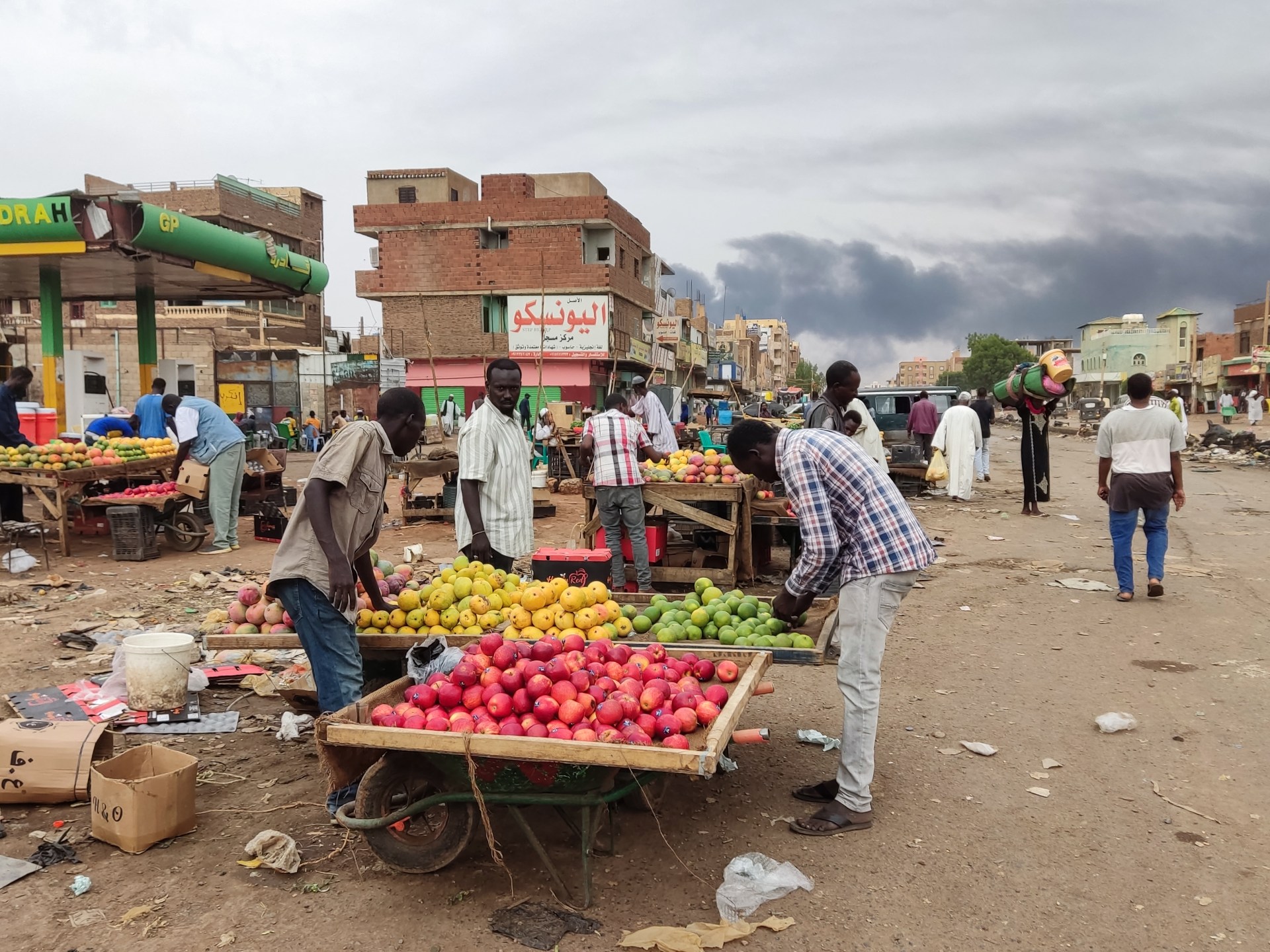A cautious calm prevailed in the Sudanese capital Khartoum on Saturday morning, as a 24-hour truce between the army and the Rapid Support Forces (RSF) went into effect.
The sounds of gunfire in the city, as well as shelling and overflights, disappeared after the ceasefire began at six a.m. local time in Sudan (four a.m. GMT).
The new truce, brokered by the United States and Saudi Arabia, follows a series of ceasefire agreements between the parties to the conflict in Sudan.
According to a statement from the Saudi-US mediation, the agreement aims to "provide humanitarian aid, break the state of violence, and contribute to strengthening confidence-building measures between the two parties, allowing the resumption of Jeddah talks."
Sudan's army said it had agreed to the truce "taking into account the humanitarian aspects suffered by our people as a result of the ongoing operations", stressing that it reserved "the right to deal with any violations that may be committed by the rebels" during them.
The RSF also pledged to "fully" abide by the ceasefire agreement "in order to serve the purposes of the truce", hoping that the army will fulfill its pledges "and not obstruct humanitarian aid efforts to alleviate the suffering of citizens".
Since the conflict began in April, Sudan's two conflicting sides have struck ceasefire agreements that were quickly violated.
Sudan Conflict Observatory
On the other hand, the US State Department announced on Friday evening that it supports a platform called the "Sudan Conflict Observatory" to publish the results of satellite surveillance of combat and ceasefire.
U.S. Secretary of State Antony Blinken said the Observatory's role was to report on violations of international humanitarian law and others, adding that it was time to end the "cycle of violence" devastating the Sudanese people.
A preliminary report by the Observatory documented "widespread and targeted" destruction of water, electricity and telecommunications facilities, Reuters reported.
It also documented "systematic" attacks on the burning of property, as well as several attacks on schools, mosques and other public buildings in the city of El Geneina (the far west of the country).
The United Nations said more than half of Sudan's population would need aid this year because of the fighting, with most hospitals in conflict zones out of operation and food supplies dwindling in many areas.
The previous ceasefire allowed some humanitarian aid to arrive, but aid agencies said they were still hampered by fighting and looting.
Hours before the start of the new truce, fighting between the army and the RSF continued south and east of Khartoum. Al Jazeera correspondent reported violent explosions in conjunction with the flight of army air force planes in airspace east of the capital.
UN response
Stephane Dujarric, spokesman for the UN Secretary-General, said that the Sudanese government's consideration of the UN envoy as persona non grata is "incompatible" with the principles of the United Nations and "cannot be applied," pointing out that his status "has not changed."
This came in response to Sudan's announcement that UN Special Envoy Volker Perthes is not welcome in the country.
"Peretz's status has not changed at the moment, and the position of the Secretary-General (Antonio Guterres) remains as he expressed it before the Security Council last week," Dujarric said. This is a reference to Guterres' "absolute confidence" in his envoy to Sudan.
Last Thursday, Sudan's Foreign Ministry notified the UN secretary-general that Volker Peretz was "undesirable on its territory."
Since April 15, Khartoum and other cities have been witnessing clashes between the army led by Abdel Fattah al-Burhan and the Rapid Support Forces (RSF) led by Mohamed Hamdan Daglo (Hemedti), which have left hundreds dead and thousands injured among civilians, in addition to a wave of displacement and asylum from one of the world's poorest countries.

